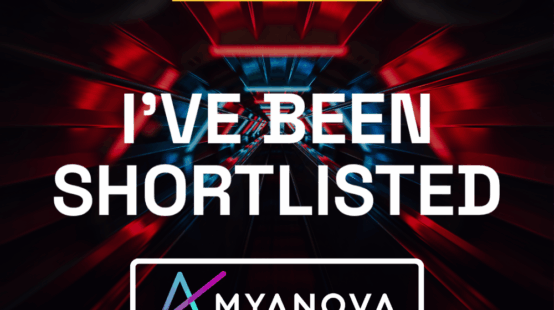
In 2017, a Tulip-style mania overtook the world of cryptocurrency. I don’t mean Bitcoin at $10,000+, but the world of “tokens” and “initial coin offerings” (ICOs) that drew in billions of dollars of investment / gambling (* delete where applicable) for things that do not, at first glance, appear to even exist.
Billions? For what? Well, as The Economist explained, ICO “coins” are essentially digital coupons, tokens issued on an indelible distributed ledger, or blockchain, of the kind that underpins bitcoin, a crypto-currency. That means they can easily be traded, although unlike shares they do not confer ownership rights. Instead, they often serve as the currency for the project they finance… Investors hope that successful projects will cause tokens’ value to rise. Yes, but… $2 billion? Is that for real?
The truth is that it may be only the start. Brock Pierce, who was responsible for the first ICO of its kind (MasterCoin) back in 2013, has a stake in a great many companies in the space via Blockchain Capital. He knows about investing in a way that I very much do not. Here is what he said back in June 2017 about ICOs: I think what I’ve done is the end of all VC, all private equity, all rates because these are industries that are illiquid… I think the Sequoias of the world will go out of business. I think all the big VCs are done. Now, that sounds like, and indeed is, an astonishing claim. But the thing is… I think he may be right.
He goes on to say that Bitcoin, or whatever comes after Bitcoin, will be bigger than any government currency. I think he may be right about this too. Or, to put it another way, while Bitcoin itself is not the money of the future, it may be a progenitor of a number of secure platforms for the monies of the future.
Yes, monies. The way money works is a transient set of institutional arrangements (generally known as the “Washington consensus”) and not a law of physics.In his thought-provoking 2014 book The Money Trap, Robert Pringle (a former editor of The Banker) wrote that at the turn of the millenium globalization reached the limits compatible with existing international monetary arrangements. I think he may be right.
In my book Before Babylon, Beyond Bitcoin, I explore a number of different monetary arrangements for the future. One such arrangement that I explore in some detail is the concept of private money set out by the noted “lateral thinker” Edward de Bono. He wrote a pamphlet called The IBM Dollar for a London think tank, the Centre for the Study of Financial Innovation (CSFI), back in the early 1990s. In it he argued that companies could in the future raise money just as governments now do — by creating it from thin air. Now, if that notion seems to have resonance in age of ICOs then, well… that’s why I think Mr. Pierce’s comments may have substance.
IBM, in de Bono’s example, might issue “IBM Dollars” that would be redeemable for IBM products and services, but are also tradable for other companies’ monies or for other assets in a liquid market. To make such a scheme work, IBM would have to learn to manage the supply of money to ensure that the monetary base and its capacity to deliver are matched and that inflation does not destroy the value of their creations. But companies should be able to manage that trick at least as easily as governments do, particularly as they don’t have voters to cope with.
Why will this challenge VCs? Well, a start-up launches, and instead of issuing equity, it issues money that is redeemable against future services. So, for example, a distributed file storage start-up might offer money in the form of "megabyte days" that are redeemable five years from now. In the early days, this money would trade at a significant discount to take account of the risks inherent in the venture. But once the file system is up and running and people are using it, then the value of the money will rise.
With tens of millions such currencies in circulation, constantly being traded on futures, options and foreign exchange markets, it might sound as if the “money” would be unusable because transactions would be unbearably complex for people to deal with. But as I wrote in The Financial Times, that’s not the world that we will be living in. This is not about transactions between people but transactions between what Jaron Lanier called “economic avatars“ (and those avatars might represent people or things). This is a world of transactions between my virtual me and your virtual me, the virtual Waitrose and the virtual HMRC.
Our robo-advisors will be entirely capable of negotiating between themselves to work out deals as described by de Bono. Algorithms will determine which financial assets were sold by the purchaser of the good or service depending on the value of the transaction. And the supplier of that good or service would know that the incoming funds would be allocated to the appropriate combination of assets as prescribed by another algorithm. In other words, instead of bank account in conventional fiat currency, companies would hold a basket of private monies.
Dr.de Bono also wrote (long before we are all using the web to read about Bitcoin) that the key to any such a system would be “the ability of computers to communicate in real time to permit instantaneous verification of the creditworthiness of counterparties”, an early vision of what we might now call the reputation economy that I explored in my previous book Identity is the New Money, where I noted that identities and credentials are easy to create and destroy but reputations are much harder to subvert — especially in the age of the blockchain — since they depend not on what anyone thinks but on what everyone thinks.
We now have the technology needed to deliver the Facebook Dollar, the Amazon Dollar, the Apple Dollar and the Microsoft Dollar (I insist that they be called Bill’s Dollars). It’s not M-PESA or chip and PIN, but the technology of “tokens” that took off with the development of the ERC-20 standard back in 2015. ERC-20 defined a way to create a standard form of token in a “smart contact” on the Ethereum blockchain. Ignore the language here — they are not smart and they are certainly not contracts, they are a special kind of application that executes on a shared ledger — and just consider the token as a practical implementation of a private digital bearer claim on goods or services, without centralised clearing and settlement infrastructure.
Right now, the new world of ICOs is chaotic. Hundreds of millions of dollars are being raised in the Wild West of digital finance. Filecoin, a company that plans to monetise unused computer storage, raised $50m+ in token pre-sales to Silicon Valley investors (including Sequoia Capital and Andreesen Horowitz) and another $200m in a public token sale. That came not long after Tezos, which is developing a blockchain competitor to Ethereum, raised $232 million.
The Securities and Exchange Commission (SEC) ruled in July 2017 that certain kinds of tokens are in fact securities and that transactions must regulated. This was hardly unexpected and I certainly think that the ruling was good news. Yes it is causing some disruption right now (one of the largest exchanges, Bitfinex, suspended the trading in tokens used for ICOs for US citizens) and yes some people will lose a lot of money and yes some people will end up in jail (the SEC is taking action over ICOs about once every month, with PlexCoin their latest target) and yes there are class action lawsuits, but that’s what happens as we move from a Wild West to regulated growth and prosperity. The regulation of this space is important. I think that ICOs are more of a picture of the money of the future than Bitcoin is and that is why I think Pierce’s apparently radical comments are far from hubris.
As I said in Before Babylon, Beyond Blockchain, tokens may make a real difference to the way the economy works. When the current craziness is past and tokens become a regulated but wholly new kind of digital asset, a cross between corporate paper and a loyalty scheme, they strike me as being something of an opportunity to remake markets in a new and better way. With reputations established as an immutable history of participation in transactions, good behaviour will not be gamed and bad behaviour will be on display. Market participants will be able to assess and manage risk, regulators will be able to look for patterns and connections. I’ll be able to see that your assets exceed your liabilities without necessarily being able to see what those assets or liabilities are. As Salome Parulava and I wrote in Ambient Accountability for the just published Handbook of Blockchain, Digital Finance and Inclusion (Elsevier 2017), we will find ourselves in an era of ambient accountability, where the technological architecture means constant verification and validation. This framework takes us beyond “FinTech” to “RegTech”.
Right now, a great many of these ICOs originate in Zug in Switzerland (often referred to as "crypto-valley”) because the issuers use the vagaries of Swiss Foundation law to wrap the tokens. I’m not convinced that this is a long term solution (and nor are the Swiss, since their Financial Market Supervisory Authority, FINMA, has been investigating the ICO market since September). The International Center on Nonprofit Law (ICNL) said that “the Swiss regime is minimalist and… might not be sufficient in terms of setting standards on transparency”. Crypto-valley has attempted to self-regulate with a code of practice, which is surely a step in the right direction but not as effective as a regulatory framework. There is surely an opportunity for Jersey to replace Zug as a token issuing an trading hub by providing an appropriate legal framework, deploying regtech (for KYC, for example) and applying fintech to the interfaces. If companies thought that launching an ICO out of Jersey would deliver transparency and certainty that would give them both security and credibility, then we might hope to see a vigorous token marketplace on the island.



